UK screenwriting duo Piers Ashworth and Nick Moorcroft talk about their longtime collaboration with Ealing Studios, their latest project Burke And Hare, and cracking Hollywood.
Successful British screenwriting duo Piers Ashworth and Nick Moorcroft may have made their names writing the St Trinian’s films for Ealing Studios. But it was actually their latest project, 19th century black comedy Burke And Hare, which they wrote back in 2004, that saw the start of their long term collaboration with Barnaby Thompson at Ealing Studios.
Directed by John Landis, the film stars Simon Pegg and Andy Serkis as a real life serial killing duo who set up a lucrative business selling bodies to the Edinburgh medical profession in the 19th century. Burke And Hare is released in the UK by Entertainment on October 29.
The pair are now writing the script for Columbia Pictures’ A Lion Called Christian, based on the youtube sensation about two friends who raise a lion, as well as another film for the studio, which is, says Piers Ashworth “a huge movie, which is a secret for complicated Hollywood reasons, because there is another movie from another studio on the same subject and there is a race on.”
Meanwhile, they are reteaming with Ealing for another British film, Fishermans Friends, about a group of Cornish fisherman who became unlikely pop sensations, which, says Ashworth, is in the vein of British comedies such as The Full Monty.
You’ve worked together for 7 years now. How did the collaboration begin?
Nick: Piers was already an established screenwriter, he had written Nostradamus and the first draft of Mission Impossible. He had a good reputation as a script doctor in the 90s.
I had made a couple of short films and been to drama school, but had never been involved with screenplay writing. But then I met Piers through a mutual friend and we just got on well, and he became a mentor figure. He then said that the only way to get really good at screenwriting was to actually write a film, so that’s what I set out to do.
Piers: There comes a point when you are doing things on your own and it wears thin and you need inspiration and new ideas. And I felt that Nick had a different sensibility. Nick is very detailed orientated and is very good at working on specific moments, whereas I have a clearer sense of structure and overall story. When we put it together, it worked and once we realised that it was a good experience to work together, it made sense.
Where did you get the idea for Burke And Hare from?
Nick: I was on a trip with my mum to Edinburgh..we went on a ghost tour and heard about this story [about a real life Irish duo who killed people to provide dead bodies to the Ediburgh medical profession in the 19th century].
That was the catalyst. I talked to Piers, and we both agreed it would be a great idea. So I went away and did something, brought it back to Piers. But I had written it as a serious drama and he said he thought I should start again and do it as a comedy.
That was basically the start of our partnership. It was almost like I had earned my stripes by doing something. He sat down and said let’s start again from page one. It was a huge blow, but a huge lesson. We started right from the beginning as a team, we sold that as a spec screenplay to Barnaby Thompson [Ealing Studios head] six years ago.
As soon as we sold it to him, he’s been a fantastic collaborator with us.
What was it like working John Landis?
Nick: Before we met him, we would quote things from Trading Places or Blues Brothers. He was one of our reference points when we were writing.
So to get him in the room, saying he wanted to make the film and then to go on a work with him, was fantastic. He was hugely respectful to us as writers. He invited us into the editing room and on set, and it has become a real friendship.
Piers: He hasn’t made a movie for a long time, but senses of humour goes in waves. Because Burke and Hare is a period movie, and because it was somewhere in that comedy horror genre, it suited him. And his kind of humour has come back, you can see it inZombieland. It feels like we have gone full circle. What’s amazing is, now you put on Sky and every day you can see Trading Places or Coming To America, whereas there was a period where you wouldn’t have seen them.
What can you tell us about the third St Trinians’s film, which you have just written?
Piers: We are doing a final draft at the moment, with the idea that it will shoot at the beginning of next year.
The logline is St Trinians Against The World. In order to deceive their opposition, the establishment, they find an ancient bi-law which allows them to declare themselves a sovereign state and become a country, run by anarchic, self interested school girls. They end up at Buckingham Palace and the Queen is involved. Let’s just say there is a big girl power element to it.
There is a lot of fun, there is also a political satire element to it and about what it means to be a country. It’s slightly reminiscent of the another Ealing comedy, Passport To Pimlico.
The St Trinians franchise has been a big success at the box office and you do tend to write “commercial” films, which is quite unusual for British films..
Nick: I think Piers and I we are incredibly commercially minded writers. That is not to say that we don’t want to write about big issues with big themes.
We are heavily influenced by American cinema and the success of American cinema. I think that’s why the marriage works with Barnaby Thompson at Ealing. Barnaby’s background was working on Saturday Night Live, so we kind of spoke the same language in the room. Now that we have gone to America and pitched and they have acknowledged that and we are now in the system and being employed by the studios, it is really exciting.
Piers: We make no bones about the fact that we are commercial writesr. We are not making art house films, or films for tiny audiences. But at the same time, what’s interesting is, there is a moral ambiguity to all our characters includingSt Trinian’s. In their own way they are far more subversive than the original St Trinians characters. And Burke and Hare is about two serial killers. Who are heros. There is something very subversive in that level of comedy.
In England you tend to get either Lesbian Vampire Killers style slapstick or beautifully crafted pieces like An Education, but in terms of that kind of comedy it’s a long time since I’ve seen anything like this.
We want to make The Hangover and There’s Something About Mary. They are our kind of movies, that’s why America is the place as well, because in the end, they want writers who can deliver big movies…
Which explains why you have started working with US studio Columbia on the screenplay of Lion Called Christian. How did you make the break into Hollywood?
Piers: Our American agent had sent out Burke and Hare. It was an interesting writing sample, because it was unlike anything else that anyone was reading and writing, and it had a certain style to it and a certain slickness, plus it’s basically a buddy movie. So we got a lot of traction over in America, as a result a lot of projects came our way.
We met with Columbia and they were pushing A Lion Called Christian. I think they spoke to a lot of writers about it. It was unusual because it was set in London in the 60s, so we had a bit more of an angle on that than some Americans.
Nick: Funnily enough Burke and Hare lead to more offers in terms of work in LA than it did in England.
I think in England, people see a lot more period scripts, there is a tradition of British writers writing historical dramas. Whereas in America, the reaction was, we haven’t read anything like this. So I think it was refreshing for them to find new voices.
All the feedback we got in America when it was first read was, we really love this, but you would never have a hope in hell of getting it made here. Because it is just not something they would make. But as a writing sample, it was a fantastic writing sample, because to them it felt so unique.
Now that you are big shot Hollywood screenwriters, are you going to turn your back on the UK?
Nick: It’s every screenwriters dream to go and work in Hollywood. But ultimately, Barnaby and the British film industry gave us our first opportunities and the reason why we brought him Fishermans Friends, exclusively, was out of respect for him and because we have this long standing relationship and a desire to continue making successful British comedies.
Piers: We certainly don’t want to turn our backs on England, because it’s where we are from, and we’ve got a great relationship with Ealing and people like Nigel Green at Entertainment. But equally we are not going to turn down a studio movie.
I think a lot of English writers end up bouncing between TV and movies to maintain a career or just go to Ameica and leave England behind. We’re trying to do both.
What’s the secret to your working relationship?
Piers: Everyone is different, but we tend to sit down and thrash it out until we get to a structure we like and then one of us starts and bounces the pages back to the other, because then we have something to talk about, rather than sitting in a room trying to work out a gag. That would be mad. Then eventually we sit down together for the last week of the process to tidy it up and hone it down and put more jokes in. Over time you reach an understanding. For instance, I know how long it’s going to take him to write the next five pages, so I know not to harass him until then!
Nick: There is a trust there. One of you can’t be the dominant partner, it’s like a successful marriage, there must be compromises, and you argue along the way, but ultimately you have to respect your partner’s point of view!

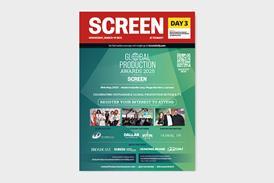


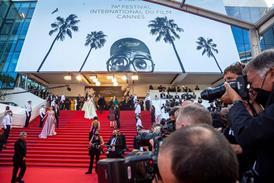
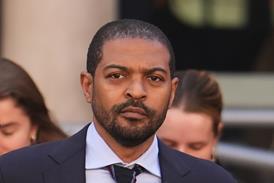
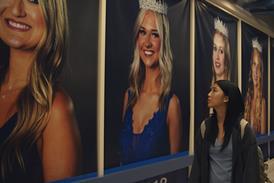
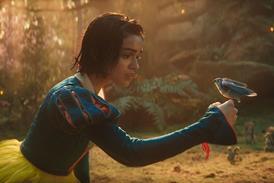




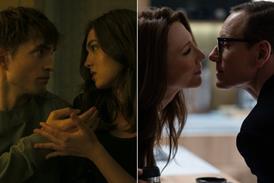









No comments yet